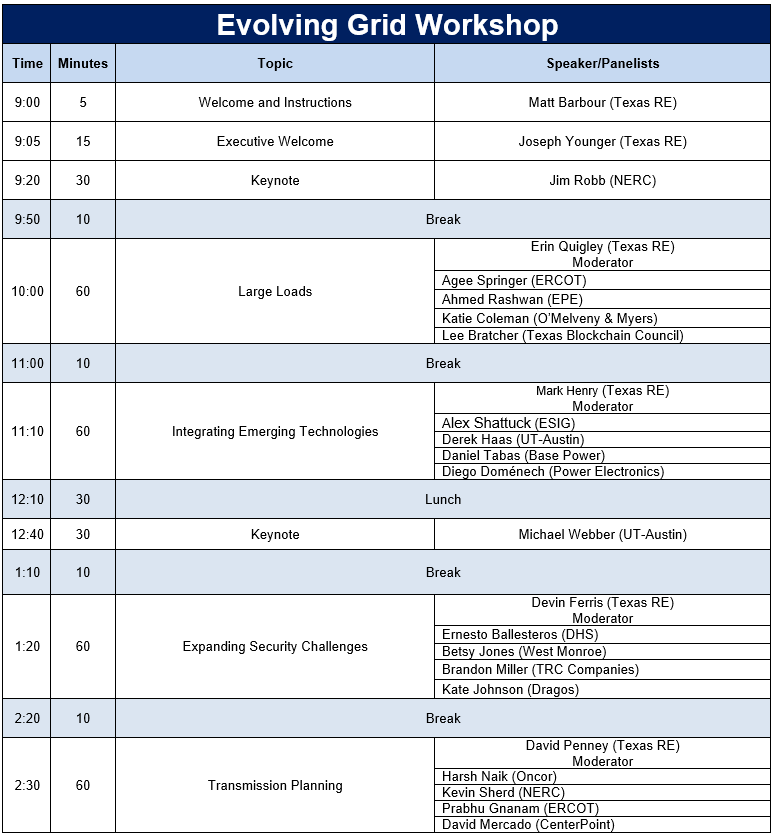The 2024 Long-Term Reliability Assessment (LTRA) shows that most of the North American Bulk Power System (BPS) faces growing resource adequacy concerns over the next 10 years. The Electric Reliability Organization (ERO) Enterprise report concludes that industry will face critical electric reliability issues because of an escalating demand for energy, aging thermal generator retirements, and the acceleration of inverter-based resource generation and transmission development. In short, the BPS in 2034 promises to look vastly different from our current grid.
In the Texas Interconnection, increasing demands from data centers, Bitcoin operations, and continued load growth in oil and gas producing regions all present expanding reliability considerations. Simultaneously, variable resources—primarily solar photovoltaics—continue to grow at an unprecedented pace, resulting in an increasing reliance on battery energy storage systems (BESSs) to close the gap between intermittent generation resources and growing demand.
With these emerging challenges highlighted in the LTRA in mind, Texas RE held an Evolving Grid Workshop on July 16, 2025, to explore the reliability and security issues for the Texas Interconnection in 2034. The workshop focused on the trends that will influence electric reliability and security over the next ten years and beyond. These include the integration of large loads, the role of batteries on the system, and the various obstacles and innovations occurring in the transmission planning process. It also includes the evolving puzzle of securing such a dispersed and variable grid as new technologies like artificial intelligence increasingly come on the scene.
Recordings
Keynotes
Michael Webber
Panels
Large Loads
Large Loads
Across North America, demand growth is now higher than at any point in the past two decades. The LTRA projects demand growth to increase across North America over the next ten years, particularly as large new commercial and industrial loads interconnect to the BPS. Texas RE’s Reliability Performance and Regional Risk Assessment also identified the disorganized integration of large loads as a specific risk for the Texas Interconnection for the first time. This panel will discuss the unique challenges presented by the rapid growth of these types of large loads, the implications to forecasting and planning, and proposed solutions to help maintain grid reliability.
Integrating Emerging Technologies
In 2023, Texas RE held a Grid Transformation Workshop that focused on the rapid integration of inverter-based resources (IBRs) into the BPS and the implications for electric reliability. The growth of these IBRs is projected to continue to increase in the coming years, but other generation sources are also emerging as viable contributors to energy supply. This panel will discuss the evolution of industry technology, resources that may become more prominent by 2034, and the impacts they potentially will have on the grid.
Expanding Security Challenges
Critical infrastructure is a perpetual target for adversaries intent on disrupting the orderly functioning of society. As the technology used to generate and manage the flow of electricity advances over time, so do the tools and tactics used by threat actors attempting to disrupt the security and reliability of the electric grid. This panel will explore the development of mitigation strategies, implementation of policies, and the integration of resources that can be used to enhance the cyber and physical security postures of organizations.
Transmission Planning
The LTRA projects demand in the Texas Interconnection to grow by over 20,000 megawatts (MW) by 2034. Similarly, ERCOT’s 2024 Regional Transmission Plan (RTP) included an extraordinary amount of economic growth led by large load interconnections. This unprecedented load growth—coupled with the growing amount of congestion on today’s system—has prompted discussions about new transmission solutions, including introducing 765-kV infrastructure. This panel will discuss the challenges and opportunities in meeting ERCOT’s growing transmission planning needs and the efforts already underway to support the grid of 2034.
Keynote Speakers
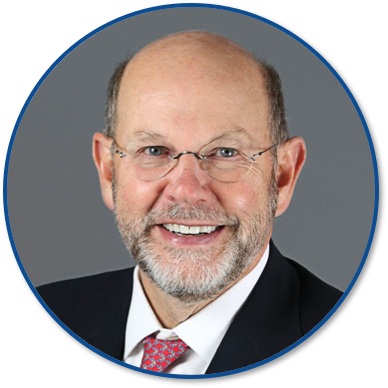 |
Jim Robb is the president and CEO of the North American Electric Reliability Corporation. As president and CEO, Robb leads the Electric Reliability Organization (ERO) and is responsible for key programs, including those programs focused on development of mandatory NERC Reliability Standards, the Compliance Monitoring and Enforcement Program, situational awareness, event and risk analysis, reliability assessments and forecasting, and cyber and physical security. He is also responsible for the performance of the Electricity Information Sharing and Analysis Center (E-ISAC) and key government partnerships. Robb earned a bachelor’s degree in chemical engineering from Purdue University and a master’s degree in business administration from the Wharton School of Business at the University of Pennsylvania. |
 |
Michael E. Webber is the Sid Richardson chair in the LBJ School of Public Affairs and the John J. McKetta Centennial Energy chair in the department of mechanical engineering at the University of Texas at Austin. Webber’s works spans research and education at the convergence of engineering, policy, and commercialization on topics related to innovation, energy, and the environment. He serves on the board of GTI Energy and the Scientific Advisory Council for ENGIE. Webber has authored or co-authored more than 600 publications, including five full-length general interest books, and holds 6 patents. His essays have been published in The New York Times, The Wall Street Journal, Washington Post, Scientific American and more. Webber’s scholarly articles have appeared in top journals such as Science, Nature, and Environmental Science & Technology. His book Power Trip: the Story of Energy is the basis of an award-winning 12-part television series. Webber holds a B.S. and B.A. from UT Austin, and M.S. and Ph.D. in mechanical engineering from Stanford University. |
Panelists
 |
Erin Quigley is the manager of registration & certification at Texas RE. Erin first joined Texas RE in July 2022 as a risk assessment engineer. Prior to coming to Texas RE, she supported real-time operations of ERCOT's Market Management System, as well as LCRA's Generation Management System. She holds a B.S. in biomedical engineering from the University of Texas at Austin. |
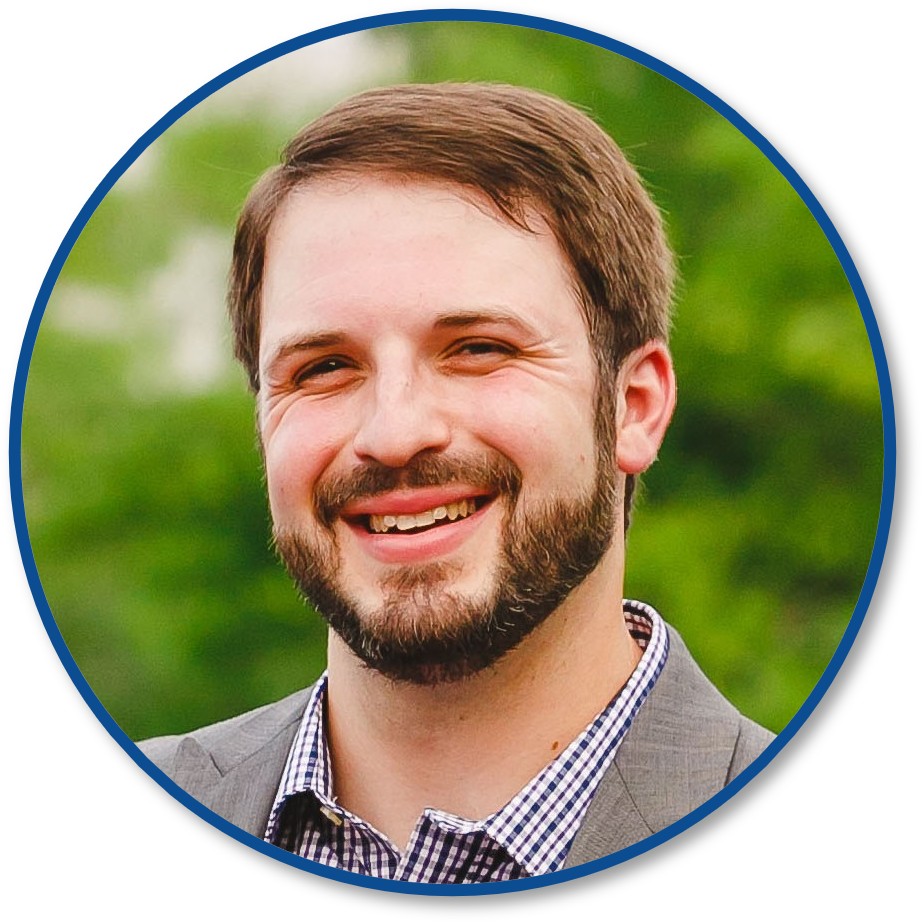 |
Agee Springer is senior manager of grid interconnections at ERCOT. His department is responsible for the reliable integration of all generation and large load interconnection requests into the ERCOT system. Prior to assuming this position, Agee served as manager of large load integration, which oversees the interim interconnection process for large loads, develops ERCOT Protocol and Planning Guide revisions to ensure their reliable operation on the ERCOT system, and provides support for ERCOT’s Large Flexible Load Task Force. Agee’s past experience at ERCOT includes developing situational awareness displays for the ERCOT control room, providing real-time engineering support and training for ERCOT system operators, performing analyses of ERCOT operational and market data, and leading ERCOT’s engineer development program. He has also served as manager of market operations for RWE Renewables Americas. Agee holds a BS in physics from Duke University and a MSEE from The University of Texas at Austin. |
 |
Ahmed Rashwan is the senior director of transmission planning and operations at Electric Power Engineers where he leads power system analysis and advisory services for utilities from coast-to-coast, supporting ISO/RTOs, investor owned utilities, co-ops, vertically integrated utilities, and municipally owned utilities. He has over 17 years of progressive industry experience spanning operations engineering, power system planning, generation and load interconnection, and energy market design and implementation. He’s led forward looking assessments investigating operability and reliability considerations for high renewable penetration systems, major market reform implementation, large scale planning assessments and cutting edge online operating limit derivation methodologies leveraging machine learning supervision. He’s also involved in sector thought leadership through engagements with ESIG related to transmission planning study integration and large load performance requirements. |
 |
Katie Coleman serves as managing partner of O'Melveny & Myers’ Austin office. She has almost 20 years of experience representing clients on complex energy transactions, regulatory policy matters, and administrative litigation, with a focus on electricity. Katie works with large industrial energy consumers to navigate regulatory requirements in developing new facilities, buying or selling energy assets, structuring energy supply agreements, and managing energy costs. She assists companies in complying with state and federal laws governing electricity service and participating in wholesale markets.Katie also has more than a decade of experience litigating contested cases involving electricity issues before the Public Utility Commission of Texas and the New Mexico Public Regulation Commission. She also represents companies in litigation before the Texas Railroad Commission involving natural gas rates and terms of service. Katie received her J.D. from The University of Texas School of Law, and her B.A. from The University of Texas at Austin. |
 |
Lee Bratcher is the president and founder of the Texas Blockchain Council. The Texas Blockchain Council is an industry association with more than 100 member companies and hundreds of individuals that seek to make Texas the jurisdiction of choice for Bitcoin and blockchain innovation. The TBC helped to research two pieces of blockchain legislation that were passed in the 87th Legislative session and an additional two bills in the 88th Session that were signed into effect by Governor Abbott. Lee and the TBC team have a specific focus on the regulatory environment around Bitcoin mining in Texas. The TBC hosts the North American Blockchain Summit at which had sold-out audiences. Formerly, Lee was a political science professor at Dallas Baptist University teaching international relations with a research emphasis on property rights. Lee was awarded a master’s in international relations from St. Mary’s University and a Ph.D. from UT Dallas with a research emphasis on blockchain land registries. |
 |
Mark Henry is the chief engineer and director of reliability outreach at Texas RE. He has experience in the electric power industry including generation, transmission, and control center assignments as an electrical engineer and engineering supervisor from the Lower Colorado River Authority where he worked for nearly 15 years. He has worked with the bulk power system compliance program since joining the ERCOT ISO in December 1999. Mark is a licensed professional engineer in Texas and holds a BSEE from the University of Texas at Austin. |
 |
Alex Shattuck is ESIG’s director of grid transformation. He has worked across the power industry for more than 10 years, specializing in maintaining Bulk Power System reliability as inverter-based resource (IBR) penetration increases. Prior to joining ESIG, Shattuck was a senior engineer in engineering & security integration at the North American Electric Reliability Corporation (NERC). In his role, Shattuck provided support to the Reliability Working Group, as well as other multidisciplinary ESIG task forces. |
 |
Derek Haas is an associate professor at the University of Texas at Austin. Dr. Haas's research interests focus on radiation detection for nuclear arms control, non-proliferation, and advanced reactor design and licensing. This includes the fundamental physics of radioactive decay processes, fission yields, environmental transport of radionuclides, and detection techniques. Dr. Haas’s research is primarily experimental and uses the 1.1 MW TRIGA Mark II reactor at The University of Texas at Austin. He is one of five surrogate inspectors from the United States for the Comprehensive Nuclear-Test-Ban Treaty and is a technical advisor for U.S. nuclear arms control and non-proliferation policy development. He has also contributed to the analysis of the Fukushima nuclear reactor accident and nuclear tests in the Democratic Peoples' Republic of Korea. |
 |
Dan Tabas joined Base Power Company in 2024 to work on market operations for a distributed fleet of energy storage resources in ERCOT. His activities include design and deployment of algorithms for grid support, development of simulation environments, real-time fleet operations, and market analysis. Prior to joining Base, he earned his PhD in Electrical Engineering from the University of Washington, Seattle where he was a recipient of the NSF graduate research fellowship. He has also worked at Tesla, CAISO, and NREL. He received his bachelor's degree in mechanical engineering from Johns Hopkins University. |
 |
Diego Doménech is a product and applications engineer within the solar and storage division at Power Electronics USA. His career with Power Electronics started at the company's headquarters in Spain in 2021, where he focused on the IEC market, primarily serving Australia, EMEA, and LATAM regions. His core responsibilities include the development of current and future product specifications driven by market demands and grid code analysis and relevant standards.Diego previously also provided technical support at the power plant controller (PPC) level, including the creation of technical specifications and support for plant control functionalities. He also managed battery storage integrations including test plan definition, coordination, and technical customer support. |
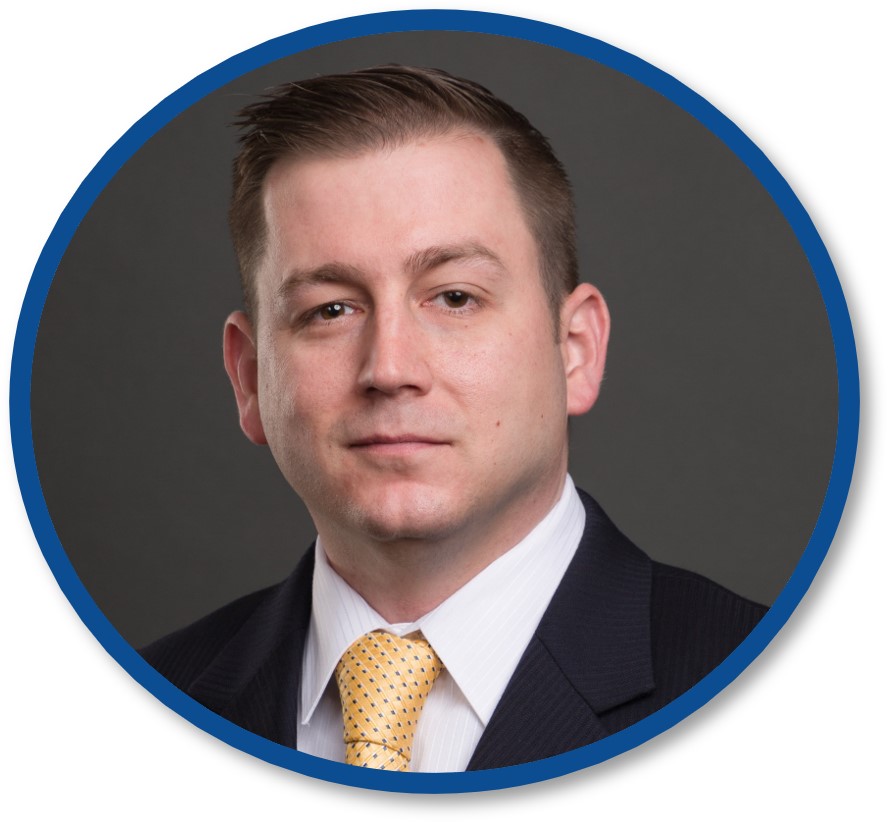 |
Devin Ferris is manager of CIP compliance monitoring at Texas RE and has been with the company since 2018. He has over 8 years Information Technology experience. Prior to joining Texas RE, Devin worked as an IT risk management specialist and IT business solutions analyst. Mr. Ferris served for over 10 years in the Texas Air National Guard, where his primary duties included monitoring, assessing, and maintaining Information Technology systems in accordance with Department of Defense and United States Air Force regulations. |
 |
Ernesto Ballesteros serves as the Cybersecurity State Coordinator (CSC) for the State of Texas at the Cybersecurity & Infrastructure Security Agency (CISA) in Region 6. As the CSC for the State of Texas, he is the principal point of contact for non-Federal entities to engage with the Federal Government on cybersecurity matters. Previously, Ballesteros served as the Texas state cybersecurity coordinator and chair of the Texas Cybersecurity Council, at the Texas Department of Information Resources (DIR). During his tenure he contributed to the development and implementation of statewide initiatives, such as the Texas Information Sharing and Analysis Organization (TxISAO), the Statewide Cybersecurity Awareness Training Program, and more.Mr. Ballesteros holds BS MS in CISS from Our Lady of the Lake University; an NSA/DHS-designated Center of Academic Excellence in Cyber Defense Education (CAE-CDE), and a JD specializing in cyber and privacy law. Lastly, Ballesteros is an (ISC)2 Certified Information Systems Security Professional (CISSP), ISACA Certified Information Systems Auditor (CISA), and CompTIA Security+ certified professional. |
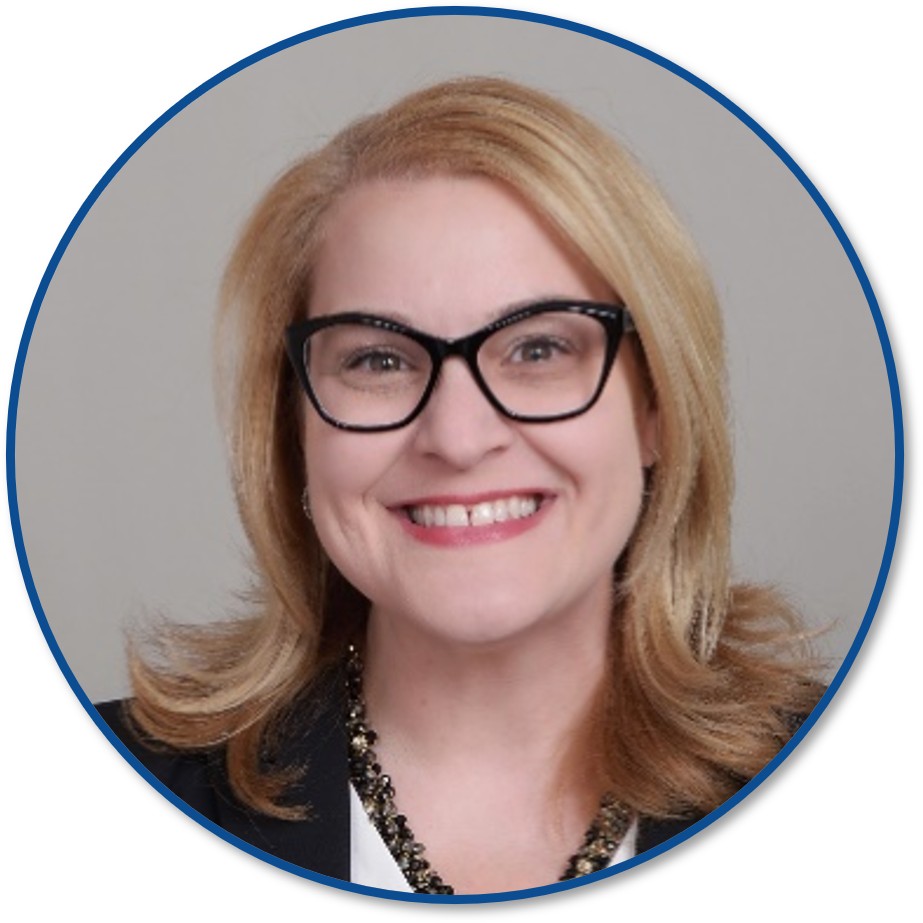 |
Betsy Soehren Jones is an executive director for the Critical Infrastructure Security Consortium and a partner at West Moreoe Partners, specializing in cyber security, artificial intelligence, and supply chain. She works with infrastructure owners to build and mature their enterprise-wide cyber programs. Betsy also advises the private equity and venture capital communities on practices and protocols to ensure emerging technologies are cyber safe for consumption and utilization by the energy and utilities sector. Previously she served as the chief operating officer for the energy industry’s Center of Excellence for Supply Chain. She earned a bachelor’s degree from the University of Illinois, Champaign-Urbana and a master’s degree in public administration and policy from Northwestern University. |
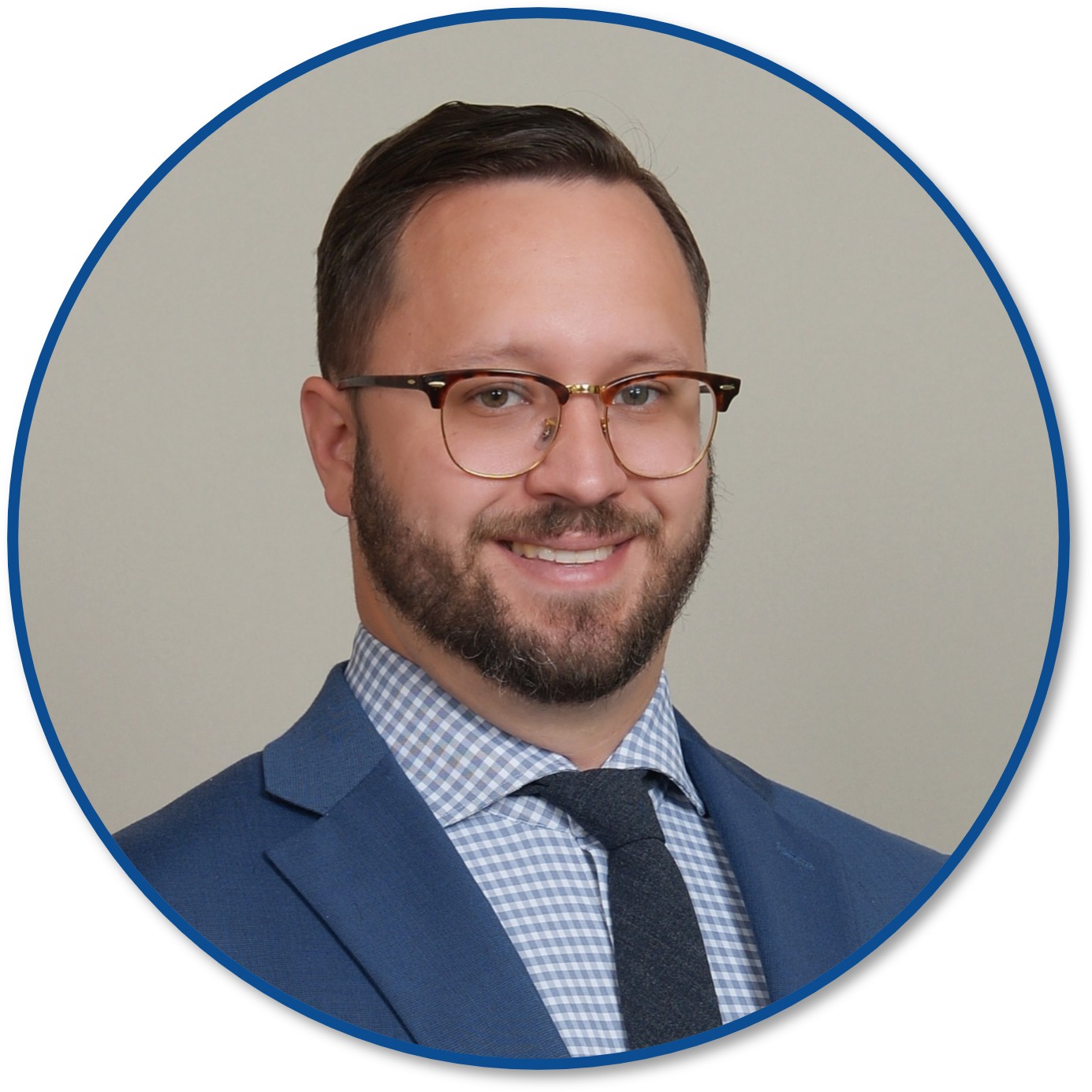 |
Brandon Miller is a cybersecurity and NERC CIP compliance professional with over a decade of experience, beginning with a military career focused on network security and evolving into supporting critical infrastructure. He later transitioned into the utility sector, where he held roles in SCADA/EMS administration and the aforementioned NERC CIP compliance, gaining deep, operational insight into the challenges faced by registered entities. He currently serves as a consultant helping electric utilities strengthen their cybersecurity posture and meet ever changing regulatory requirements, with an emphasis on practical, audit-ready solutions grounded in real-world operations. |
 |
Kate Johnson is the director of intel research at Dragos, where she manages a team dedicated to deep analysis of vulnerabilities and malware impacting industrial control systems. Dragos is an OT Cyber Security organization with a mission to safeguard civilization worldwide. Prior to joining Dragos, Kate worked at a Fortune 500 utility for eight years in various roles as well as a senior consultant at a boutique security firm. Kate’s passionate about technology solving people's problems and keeping the lights on. |
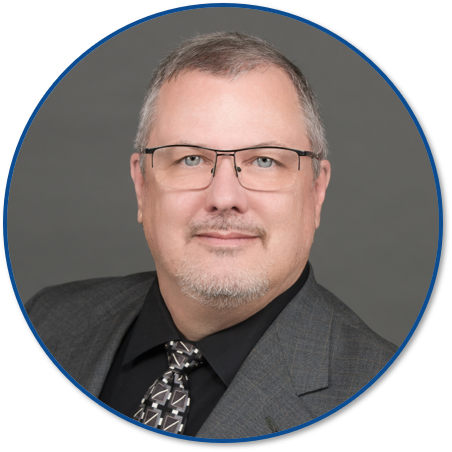 |
David Penney is the director of reliability services at Texas RE. Prior to joining Texas RE, David had over 20 years of experience with various aspects of the energy industry, including system protection and substation design, substation and transmission maintenance, and system operations with the LCRA and Austin Energy. He has also worked for an ISO 9001 certified organization while serving as a senior facility manager at Samsung Austin Semiconductor. David holds a bachelor of science degree in electrical engineering from the University of Texas at Austin and is a registered Professional Engineer in the state of Texas. |
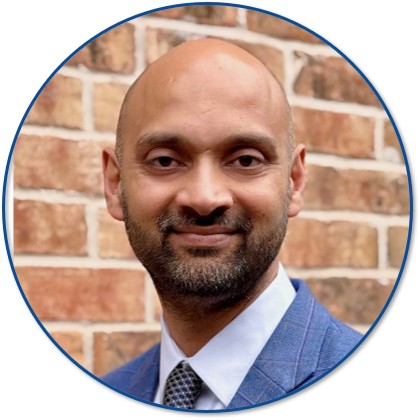 |
Harsh Naik is senior manager of transmission planning at Oncor Electric Delivery. He is a strategic leader with deep expertise in ERCOT's stakeholder process, large load interconnections, and system planning studies. Harsh oversees the development of transmission projects across a wide range of scopes, leads major large load interconnection efforts, and manages the team responsible for building planning models and performing transmission studies. He has played a key role in shaping ERCOT policy, including contributing to the development of rules governing large load interconnection processes. Harsh actively represents Oncor in critical stakeholder groups such as the RPG, PLWG, LLTF, and SSWG. He earned a bachelor of science in electrical engineering from Texas A&M University and is a licensed professional engineer in the state of Texas. |
 |
Kevin Sherd is a senior engineer at NERC where he focuses on the Interregional Transfer Capability Study, an evaluation of reliability risk during extreme conditions and how transmission expansion could help mitigate those risks. He has been working in the electric industry for 29 years, starting his career at Dayton Power and Light in Ohio, in system operations and planning. Kevin then worked at the Midcontinent Independent System Operator (MISO) in a variety of roles, including real-time operations, operations planning, market administration, and project management. He has a master’s degree in electrical engineering from Wright State University in Dayton, Ohio. |
 |
Prabhu Gnanam is the director of grid planning at ERCOT, where he is responsible for all aspects of near-term and long-term transmission planning. With 29 years of experience in the industry, Mr. Gnanam has expertise in transmission planning, system operations, generator interconnections and power system software development. Prior to joining ERCOT, Mr. Gnanam held various positions at American Transmission Company LLC, CYME International T&D, and Powertech Labs Inc.-BC Hydro. Mr. Gnanam received a master’s degree in electrical engineering from Memorial University of Newfoundland, Canada. He is a registered Professional Engineer in Wisconsin. |
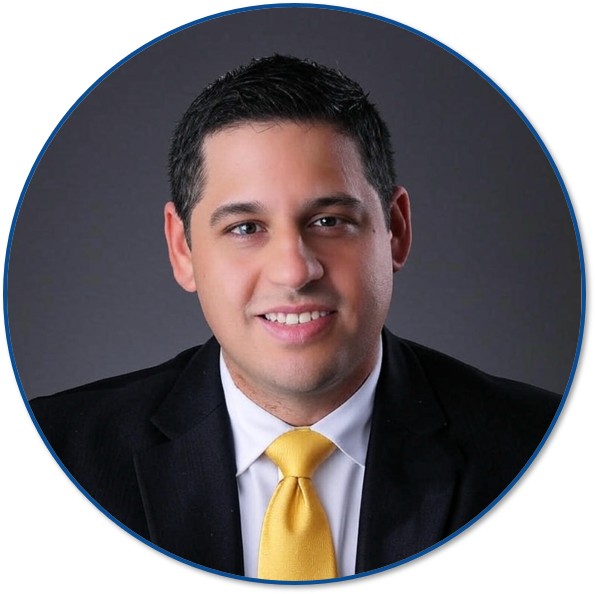 |
David Mercado is vice president of high voltage operations and compliance at CenterPoint Energy where he is responsible for the company’s transmission, substation, real-time operations, and compliance in Houston, Texas. David also works to enhance alignment of operations across multiple functional areas, focusing on bringing technological advances to operating systems, as well as ensuring productive and collaborative interactions with the Electric Reliability Council of Texas (ERCOT). During his nearly 25-year tenure with CenterPoint Energy, he has held several engineering roles with increasing responsibility and has co-authored various Institute of Electrical and Electronics Engineers industry publications and was a Fortnightly Top Innovator award recipient in 2021.David is a member of the Electric Power Research Institute’s Transmission Sector Council and represents CenterPoint Energy in the investor-owned utility segment on the ERCOT Technical Advisory Committee. He is also former chair of the Electric Reliability Council of Texas (ERCOT) Dynamics Working Group and former member of the ERCOT Planning Working Group and the North American Electric Reliability Corporation (NERC) Planning Committee.David received his bachelor’s degree in electrical engineering from Rice University, is registered as a Professional Engineer in Texas, and has a NERC system operator certification. |

